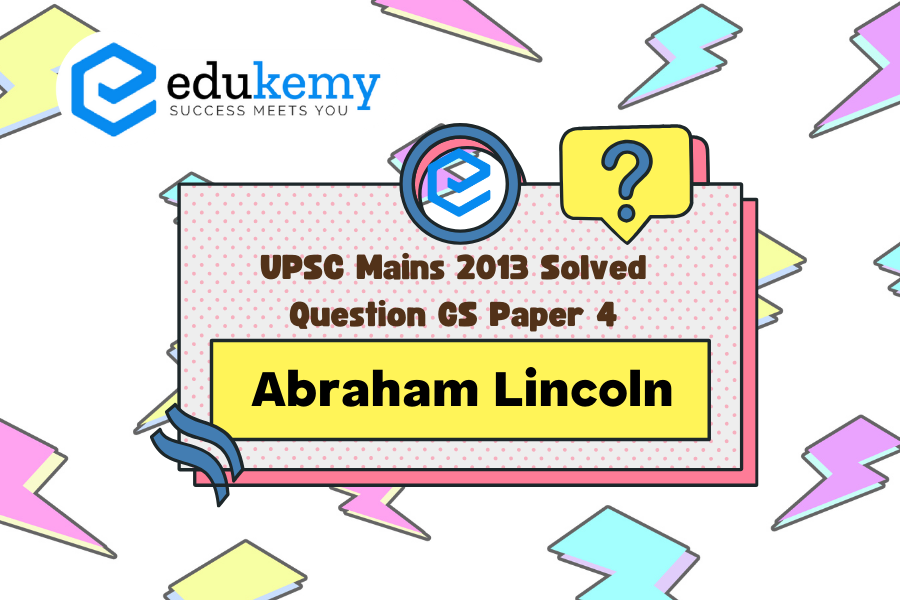Abraham Lincoln’s timeless wisdom underscores the profound relationship between power and character. In the crucible of adversity, most men display resilience and fortitude. However, it is when bestowed with power that the true essence of an individual’s character emerges. Power has a transformative effect, illuminating the depths of one’s virtues and flaws alike. It serves as a litmus test, revealing whether one’s moral compass remains steadfast or falters under the weight of authority. History abounds with examples of leaders who have succumbed to the corrupting influence of power, forsaking their principles for personal gain. Conversely, there are those whose integrity shines brightest amidst the allure of dominance. Thus, Lincoln’s insight resonates profoundly, reminding us that the measure of a person’s character lies not in their ability to withstand hardship, but in how they wield power when entrusted with it.
Tag: Contributions of moral thinkers and philosophers from India and world.
Contents
Decoding the Question:
- In Introduction, try to give the context behind the given quotes/statements.
- In Body, elaborate more on the given quotes and its relevance in the contemporary era.
- In Conclusion, try to provide suggestions and conclude with the above points.
Answers:
Abraham Lincoln is revered as one the greatest presidents that the United States has had, and much of his prestige can be attributed to his ability to reunite the country and lead the Union to victory in the Civil War. The quote given by Abraham Lincoln emphasizes on power and its effect on man. People with personal power often change the course of other people’s lives. Depending upon the motives, it may be for the better or lead them down a dark or sinister path.
Power and its reflection on Man’s Character:
- It can be said that power intrinsically is neutral, neither good nor bad. Once possessed it can be used to significantly advance the common good through the supportive actions of others. It reflects one’s will to the outside world through influencing other people.
- Unlike adversity, power can be a deceptive elevation of the human ego. Trickily, power elevates a person above the realm of our true human nature, and most times it sets us on a self-destructive battle of self-importance. For example, Hitler from Germany, and his ethnic cleanse demonstrated the worst of power.
- Relevance in contemporary era: Even though Abraham Lincoln said it over a century ago, it is no less true today than it was when he first made the statement. Not surprisingly, the authenticity of the statement is found in several spheres of human relationships. It is found with the man entrusted with the duty to serve as leader over his fellow countrymen, who turns a dictator overnight. For example, Edi Amin, the former president of Uganda promised for development and change but once he was in the power his era was marked by genocide, murder of opposition leaders, torture etc.
- Power can give a capacity to empathize which is far more important than one’s class background. For example, Winston Churchill was born in a palace, went to one of the top schools in the country, but he could speak directly to the needs of what he called the cottage home. When commanding in the trenches of the Great War, he put his earlier campaigning experience to good use in always trying to ensure the men had their creature comforts, a good postal service to connect them with their families.
As it is said, “With great power comes great responsibility”, it can be attributed to a host of historically significant events and people, including Voltaire, Winston Churchill, President Roosevelt, Hitler, Napoleon. Some have used the power to change the fate of their country by making them superpower and some have led to complete destruction.
In case you still have your doubts, contact us on 9811333901.
For UPSC Prelims Resources, Click here
For Daily Updates and Study Material:
Join our Telegram Channel – Edukemy for IAS
- 1. Learn through Videos – here
- 2. Be Exam Ready by Practicing Daily MCQs – here
- 3. Daily Newsletter – Get all your Current Affairs Covered – here
- 4. Mains Answer Writing Practice – here


